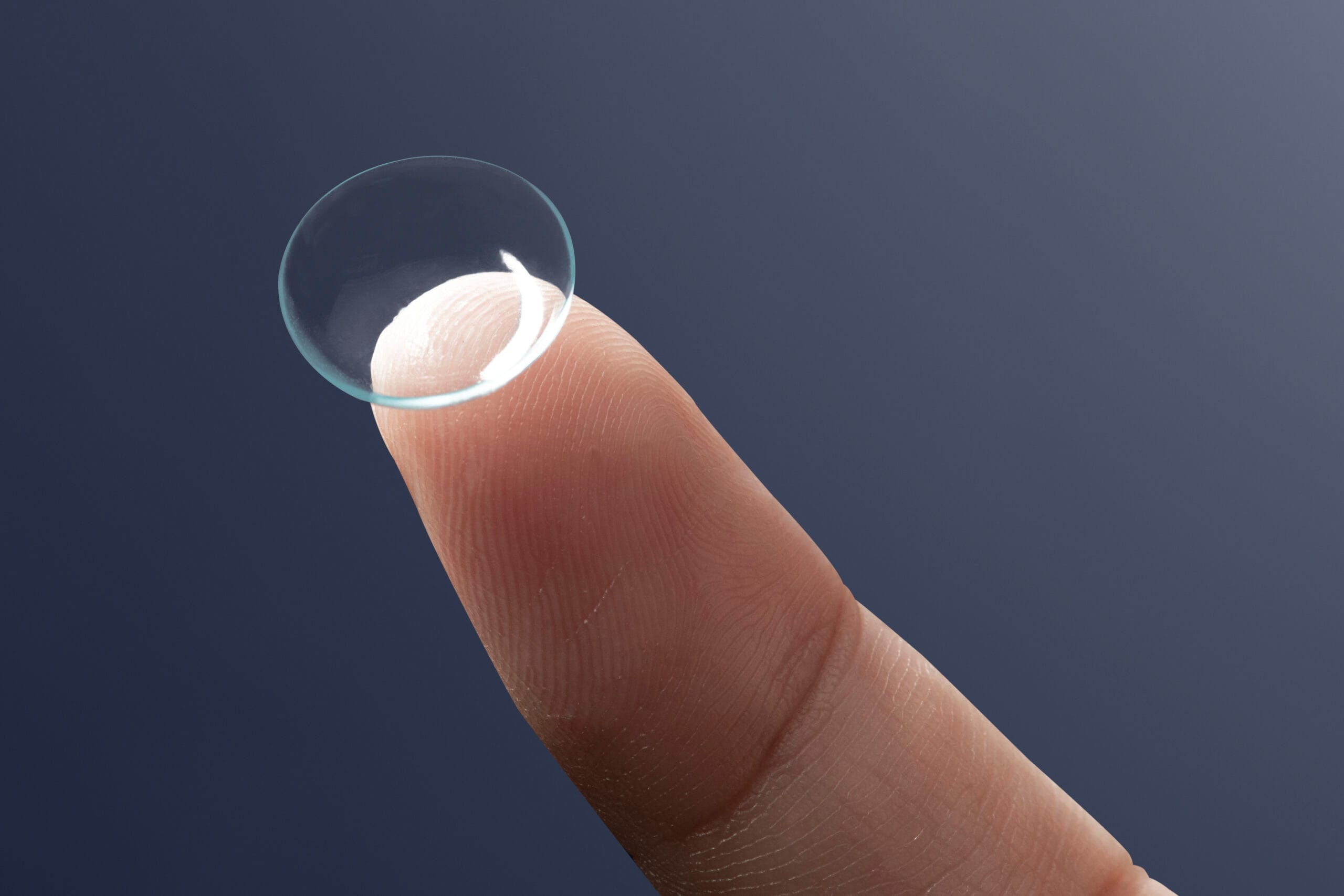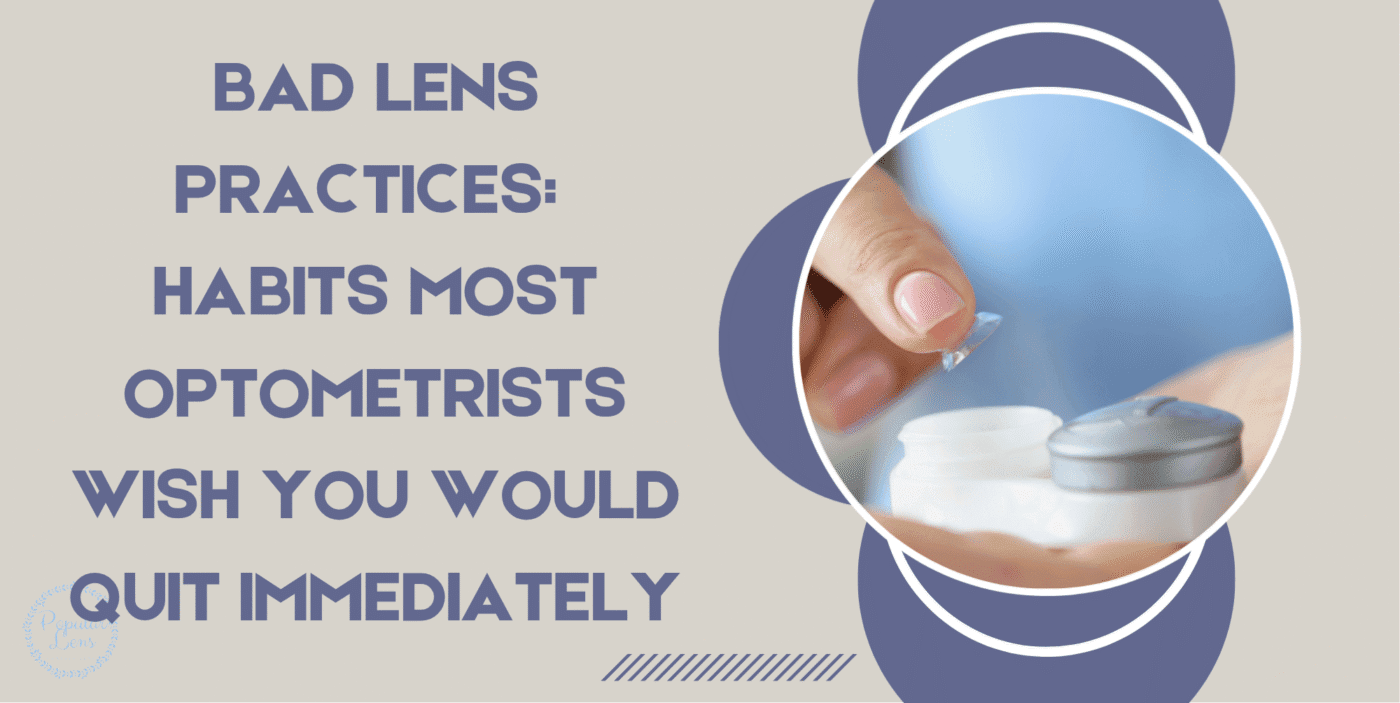Bad Lens Practices
Bad Lens Practices: Habits Most Optometrists Wish You Would Quit Immediately
Bad lens practices can shorten the life of your contact lenses and quietly damage your eyes. Sleeping in lenses intended for everyday wear to skipping adequate cleaning practices, these little errors can cause serious infections and pain. Maintaining clear and healthy vision requires regular hygiene and careful lens habits, according to optometrists.
Bad Lens Practices 1: Sleeping in Your Contact Lenses
Among the most prevalent and hazardous bad lens behaviours that optometrists advise against is slumbering in contact lenses. Though it seems innocent or practical after a hard day, this relatively little error may have major repercussions for your eye health.
Sleeping with your lenses on causes a sharp decrease in corneal oxygen flow, therefore providing the ideal setting for bacteria and other microbes to flourish. This may cause excruciating infections like microbial keratitis, which in extreme cases can cause blindness. Although some lenses are approved for all-night use, most daily or monthly lenses are not meant for overnight use.
Additionally resulting from prolonged lack of appropriate oxygen is corneal hypoxia, a condition that causes dryness, redness, and long-term eye irritation. Many contact lens wearers make this error following siestas or tiredness, believing it’s a once-in-a-lifetime occurrence, but with each event the risk grows. One of the easiest methods to preserve your eyesight, optometrists say, is taking off your lenses before bed regardless of your degree of tiredness.
Should you often fall asleep with lenses on, discuss more breathable options with your eye care expert and think about switching to daily disposables. Options such silicone hydrogel lenses. Giving this little habit top priority helps to avoid many eye health problems, therefore guaranteeing your lenses are a convenience — not a source of anxiety.
Bad Lens Practices 2: Reusing or “Topping Off” Contact Lens Solution

Among contact lens wearers, one of the most often used yet hazardous bad habit is reusing or “topping off” old lens solution instead of replacing it completely. Although this behaviour might appear to be a benign method of saving time or resolving problems, it offers the ideal conditions for the growth of bacteria and other deadly microorganisms.
The antiseptic ability of the dated solution deteriorates over time, leaving lenses resting in a cocktail of diluted chemicals and built-up residue from prior use. Inserting lenses kept in this compromised solution could expose your eyes directly to these pollutants, hence causing major illnesses include microbial keratitis, redness, and corneal ulcers.
Optometrists stress that every time you store or clean your lenses fresh disinfectant solution should be used; no exclusions. Proper hygiene protects your eyesight as well as your lenses. Consider lens solution as a “bath” for your contacts; would you reuse muddy bathwater? Here too, the same reasoning holds true. Invisible microorganisms and residues might remain even if your lenses seem clean.
Developing the habit of using fresh solutions all the time and thoroughly cleaning your lens case helps you to greatly lower your risk of infection and guarantee best lens performance. This basic but vital first step distinguishes responsible lens care from dangerous shortcuts — one every optometrist wishes their patients would follow regularly.
Bad Lens Practices 3: Ignoring Eye Discomfort or Redness
Ignoring eye discomfort or pain is among the most hazardous but still rather frequent poor lens behaviours. Many contact lens wearers view these as insignificant pains or brief dryness; thus, they keep using their lenses notwithstanding the warning signals.
Often showing anything wrong, be it a cracked lens, poor hygiene, a tear in the lens, or early symptoms of infection — eye discomfort, redness, or Usually, blurred vision is caused by prolonged interaction with these factors, which can exacerbate inflammation and, in extreme cases, lead to corneal ulcers or irreversible vision loss. Optometrists note that your eyes use redness and pain to signal problems and that not reacting quickly transforms a little problem into a serious medical disease.
Should your spectacles be reusable, the wisest move is to fast remove them, clean them in fresh solution, and avoid reinsertion until the pain abates. Should your symptoms persist, see an eye care expert instead of self-diagnosis or letting it run its course. Many infections, including fungal or bacterial keratitis, develop quickly and have to be swiftly treated to avoid blindness.
Apart from preserving your vision, paying attention to your eyes, keeping excellent cleanliness, and scheduling regular checkups also helps you preserve the Good vision lenses deliver. Basically, because tiny redness now might imply somewhat more serious issues tomorrow, never disregard what your eyes are seeking to communicate.
Bad Lens Practices 4: Handling Lenses with Unwashed Hands

Handling unwashed hands is among the most often forgotten incorrect lens management methods. Though lightly touching your lenses before positioning or removing them may seem innocent, this little error can cause severe vision problems.
Money, keyboards, cellphones, door knobs — all of which carry microscopic bacteria, oils, and grime our hands touch many surfaces throughout the day. These toxins can attach to the surface and quickly contact with your cornea when they move to your lenses, therefore raising your chances. of irritation, infection, maybe corneal ulcers. Many optometrists warn contact lens users expose themselves to germs including Acanthamoeba in tap water; as such, not even a quick rinse in water is sufficient.
Good hygiene begins with a thorough hand wash with a mild, scent-free soap then dries with a lint-free towel before lens manipulation. This little movement helps your eyes remain in form and keeps your lenses comfortable and clean. Before working with lenses, stay away from hand creams or lotions as their fatty residue might harm the lens surface or make your vision difficult.
Maintaining hand hygiene is especially crucial for people who wear contact lenses in tropical environments like Johor or elsewhere in Malaysia that is, where dust and perspiration are abundant. For every use, clean hands guarantee clear, comfortable, and free of preventable infections by safeguarding your eyes and lenses.
Bad Lens Practices 5: Skipping Regular Eye Exams
Among the most serious errors contact lens users make is skipping yearly eye examinations. Many people suppose that there is no need to visit an eye doctor if their vision seems acceptable and their contacts feel comfortable. But this habit might let quiet problems go unreported.
Eye health alters progressively, and disorders including corneal hypoxia, dryness, or early infections could not produce instant pain but can cause long-term consequences if not treated. Regular examinations enable optometrists to evaluate the state of your cornea, tear film, and the fit of your lenses in addition to your vision — all of which can alter over time as a result of age, way of life, or extended use.
Skipping these examinations might cause you to wear the incorrect prescription or use lenses no longer appropriate for your eyes, hence raising risk of infection and strain. Professionals also look for symptoms of lens wear, allergies, and oxygen deficiency during an eye checkup, therefore guaranteeing your eyes stay in good shape and at ease. These appointments are especially crucial in Malaysia’s hot environment where eye irritation and protein aggregation can happen more readily.
Eye exams are like preventive care for your eyesight; you should not ignore your eyes just as you wouldn’t miss a vehicle service. Maintaining appointment consistency guarantees early detection of problems, prompt changes to your lens type or care regimen, and peace of mind that your Eyes are indeed in excellent condition.

We are a company of optometrists & opticians. We focus on providing our customers with their preferred optical products to improve visual acuity and enhance their quality of life. At PopularLens, you will find niche and exclusive brands.
 Free Shipping within SG With Order Over $80
Free Shipping within SG With Order Over $80 Lowest Price Guarantee
Lowest Price Guarantee

